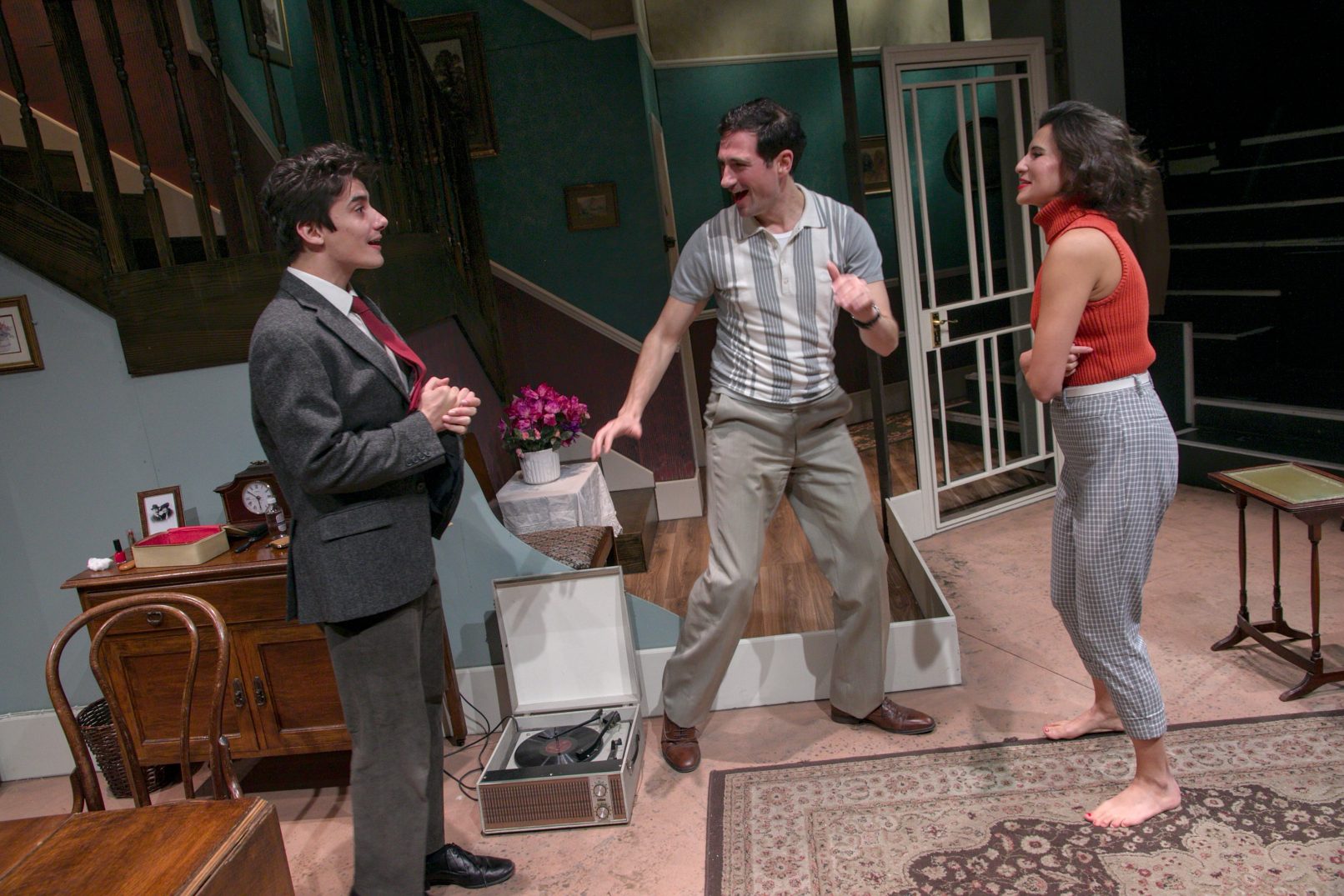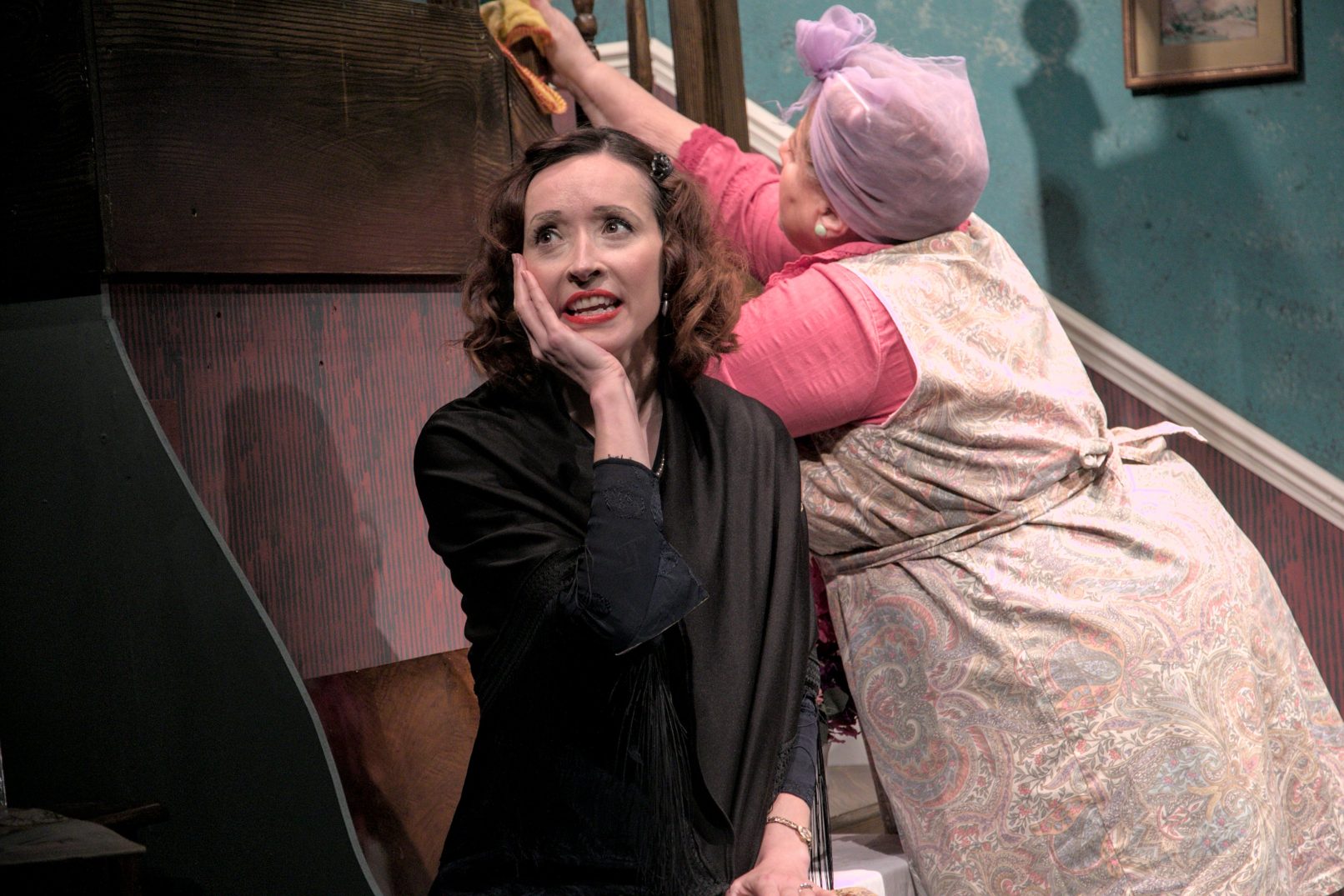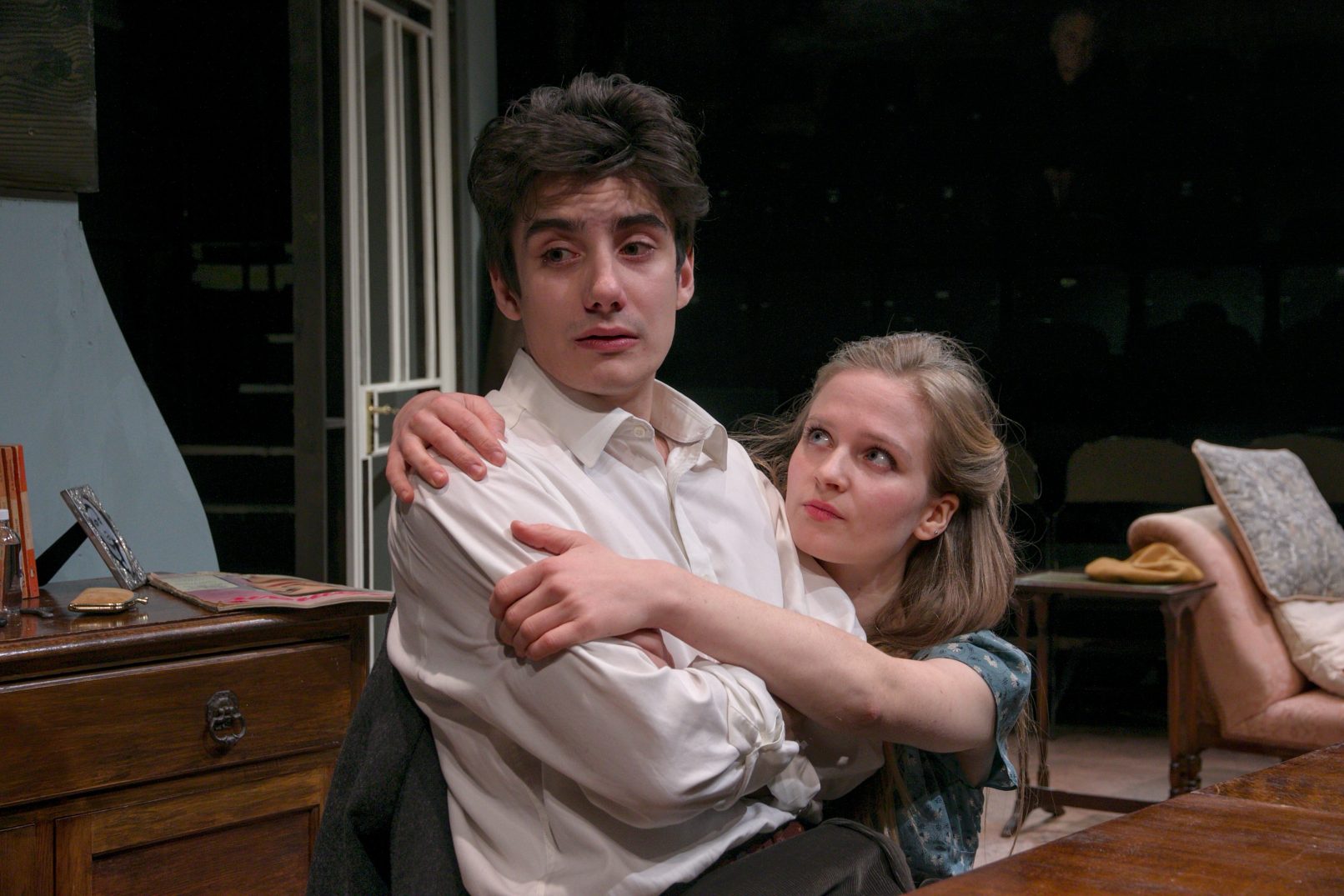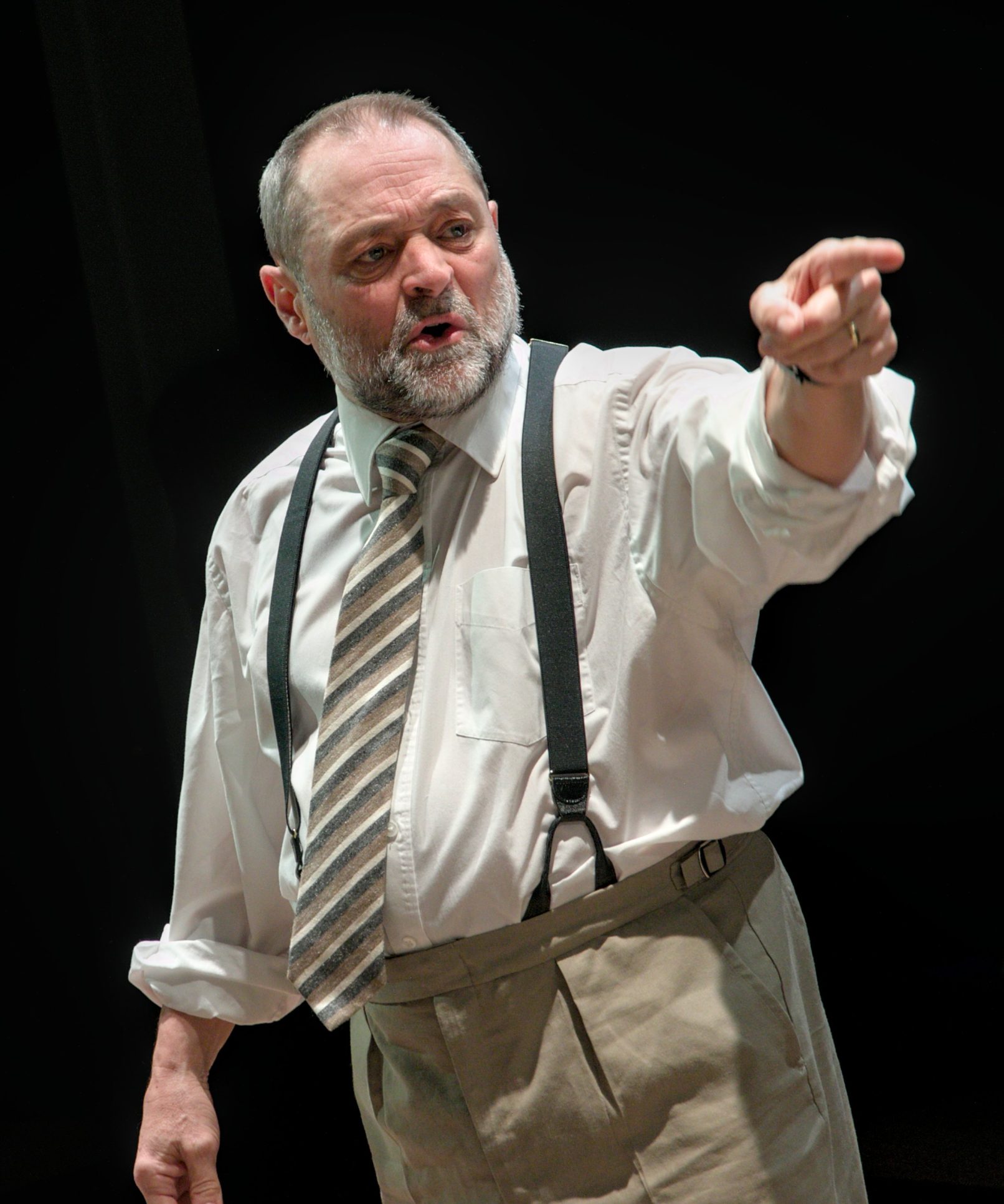Don’t Destroy Me
by Michael Hastings
Directed by Tricia Thorns
ARCOLA THEATRE January – February 2024
Co-produced with Karl Sydow, in association with Tilly Films
ABOUT THE PLAY
“All children whose parents have been busted up by war – never are the same. We’re a special breed.”
August 1956. It’s a day of excitement. Young Sammy comes to live with his father and stepmother, 15 years after they escaped as refugees from Nazi Europe. Raised from infancy by an aunt in Croydon, he now comes to London to work as an apprentice. But the young man’s arrival – eagerly and nervously anticipated – disrupts the secrets and settled ways of this rackety Jewish household and their neighbours, in ways nobody could have foreseen.
Michael Hastings “writes with an intimate knowledge of Jewish working-class life” (Jewish Chronicle, August 1956)
OFFIE Nomination – Eddie Boyce, Best newcomer
PRESS:
“Hastings was just 18 and a tailor’s apprentice, yet in Tricia Thorns’s punchily atmospheric revival we can see why his work’s raw promise quickly led to interest from the Royal Court. …
Alex Marker’s meticulously observed design immerses us in the claustrophobia of a down-at-heel but respectable flat in postwar London.
In a professional stage debut, Eddie Boyce blazes into their lives as the 15-year-old Sammy …
Where Hastings’s play resonates most, though, is in depicting lives shattered by war. The Game of Thrones actress Nell Williams in particular excels as the 17-year-old daughter, Suki, living upstairs, escaping into a fantasy world as she grapples with her mother’s mental illness.
Overall, this is a poignant, beautifully acted revival. A resonant piece of theatrical history that still ignites today.
Rachel Halliburton, The Times ****
“It is brilliantly performed by all the cast, but it’s a young man’s play and oddly shaped, too passionately overdrawn out at time. A few last scenes between Mrs Pond, Sammy and Suki make it feel as if it might move to a reconciliatory, youthful hope. But Sammy’s final despairing question of the universe and its meaning is what leaves us, reeling slightly, after the boiling final act.
It is an oddity, not as accomplished as his later plays, but on a freezing night bus back along the Balls Pond Road it haunted me. The director Tricia Thorns of Two’s Company has thrilled me with discoveries before, at the Finborough with London Wall and Go Bang Your Tambourine (1930s and 60s), at the Southwark Playhouse with an astonishing trio of contemporaneous WW1 plays about women’s work and lives, and back in the late 50s Hastings’ never-performed play – subtler than this one – about his real teenage life in an East End tailors’ workshop. Her directorial eye is perfectly attuned to these contemporaneous realist plays: in an age of nostalgia, sanitized bonnet-drama and overimaginative ‘reworkings” it is good to have such productions, and to know and feel how it actually felt to be there, in 20s or 30s or 1950s.
Libby Purves, Theatrecat
“One of the welcome boons of this revival is that it incarnates a fresh-faced new generation in the form of debutant Eddie Boyce, who has charm in spades. ..
The simple good-nature of the dreamy boy-hero, just yearning to play his gramophone and seize the day, narrowly persists amid the claustrophobic fray, and I’ll remember the hopeful gleam in Boyce’s eyes long after the play itself has faded from mind.
Dominic Cavendish, The Telegraph
“The strength of this play is in its characters. Here, Hastings created a range of complex and captivating personalities that are all so fantastically brought to life by the performers, and director, Tricia Thorns.
It would be unfair to say that a single member of the cast stole the show, they all excelled in bringing the flaws and follies to life, and that’s as much of a testament to the director Thorns as it is the cast.
A Young(ish) Perspective ****
“It’s hugely satisfying to see this lost-forever world of post-war Jewish Brixton revived. ..
Tricia Thorns’s ambitious production vaults us powerfully back to a particular moment in Anglo-Jewish history.
John Nathan, Jewish Chronicle
“This is an outstanding debut play from Hastings and if it drifts from time to time over the two hours running time is swiftly gets back on track. As the youngest and possibly angriest of the emerging Angry Young Men – John Osborne was 27 at this point – the playwright has a lot of anger to express and is forcefully on point for the inability to escape the past, consolidate the now and work out a future that isn’t just a tribute act for the societal mores of a generation subsumed in conflict and loss.
Tricia Thorns directs with a forensic eye for period sensibilities and choreographs her players so well in the playing area created by Alex Marker’s inventive set design: they not only fit the interior of a Victorian townhouse into the Arcola stage, but make us all feel a part of it, almost embarrassed by the family truths and discomforts played out closely in front of us.
Eddie Boyce is extraordinary in this position and it’s not understatement to say that he does not look out of place in this highly skilled and forceful set of players!
I thank you theatre ****
“Timely revival of Michael Hastings’ unsettling 1956 play that examines the legacy of war on immigrants in postwar London. .. This is a smart rediscovery by Two’s Company director Tricia Thorns and her nervily responsive cast.
David Jays, The Guardian
“Staged by Two’s Company, it’s a drama that hums with authenticity and Tricia Thorns, directing, achieves a grainy evocation of bomb site-riddled, postwar London. Hastings (who wrote the hit play Tom & Viv) expresses sharply too the tension between generations traumatised by war, but in conflicting ways. Leo wants peace and quiet; his son wants jazz. ..
Eddie Boyce, in a professional stage debut as Sammy, invests the young character with vivid, hopeful vulnerability and brittle uncertainty. There are lovely performances too from Paul Rider, as Leo, a man buckling under his experience, Nicholas Day as the bemused rabbi, and Sue Kelvin as a worldly-wise landlady.
Sarah Hemming, Financial Times






